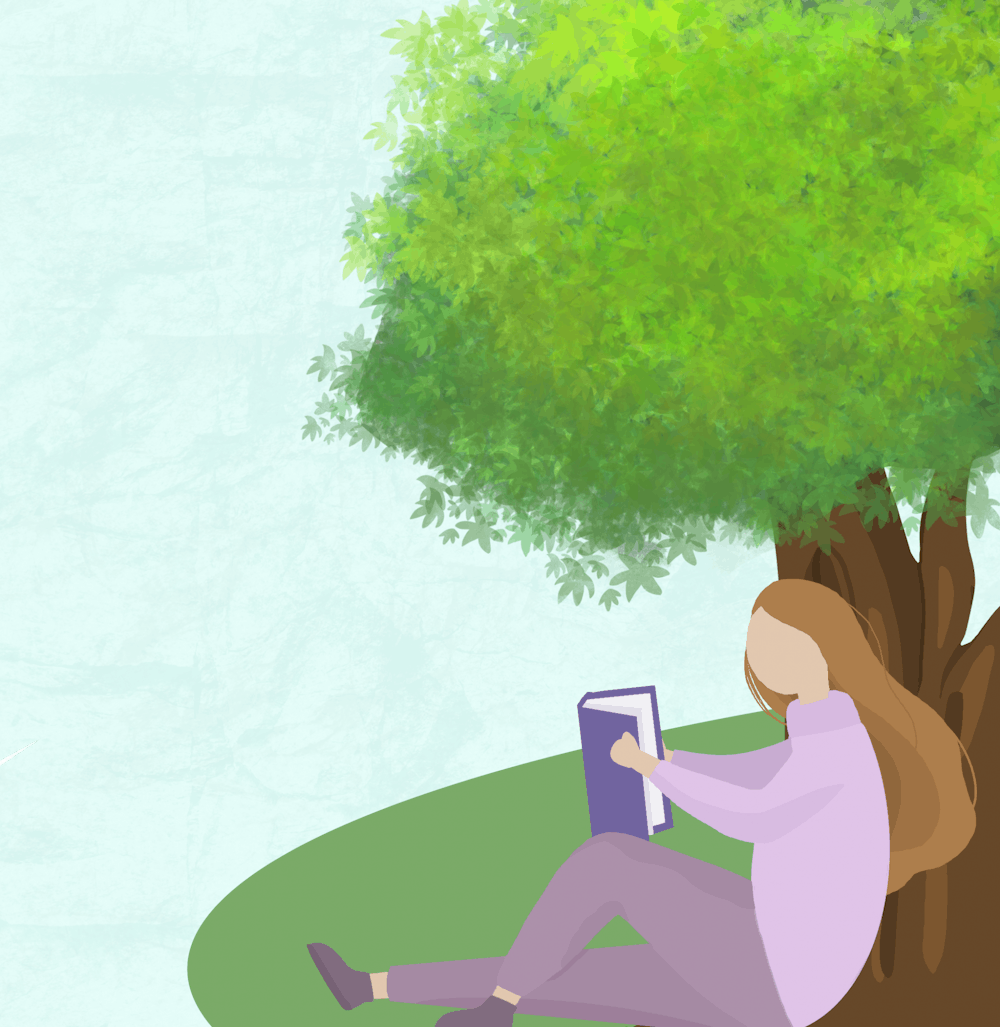Lea en español
One of the most important elements of my college experience has been my faith. As I’ve grown deeper in my Christian identity and community at the University, I’ve been challenged by a Biblical practice that I feel is extremely countercultural to the culture on grounds — Sabbathing.
Not exclusive to the Christian faith, the Sabbath — or Shabbat, in Hebrew — is also an element of the Jewish faith, and is mentioned in the Torah as well as the Biblical Old and New Testaments. Perhaps most famously, the practice is derived from Genesis 2:2, in which it is written that, “on the seventh day [God] rested from all his work.” For many modern Christians, the practice means taking one day a week to rest from academics or careers and focus on God. But how does Sabbathing fit into the University lifestyle?
At the beginning of my first year, I was convinced that the answer was that it simply didn’t. If a University student is defined by their commitment to a rigorous academic curriculum and a future of success, they can’t afford to take a day off. As the modern student-athlete axiom states, “the grind never stops” — not even on Sundays. I was struggling with my decision to make my faith my first priority amidst a culture that told me that my resume was to be my life’s focus.
This year I challenged myself to take up the practice, deciding to set aside Sundays as a day of rest and preparation for the week ahead. The practice required that I use my Saturdays to complete all my homework for the week, planning my weekends further in advance so that I don’t have work that needs to be done on Sunday. I’ve also needed to unlearn the cultural belief that our productivity defines our worth as U.Va. students — convincing myself that rest can be something that improves the quality of my work during the week, if not the quantity. It hasn’t been easy, but I’ve already begun to reap many benefits from my weekly Sabbath. While the practice has a spiritual focus, I believe that the Sabbath has much to offer non-religious individuals as well as those looking to grow closer to God.
Firstly, the practice of Sabbathing has eliminated all cases of “the Mondays.” Instead of feeling tired and bitter on Monday mornings, I feel prepared and excited for what the week has to offer. By taking time on Sunday to think and pray over the week ahead, I know how to approach it — not only mentally preparing myself for the challenges but looking forward to the fun or relaxing events I have planned. Not only am I better prepared for the week, but, having prayed about my plans, I find myself excited for how my faith will grow in the upcoming days.
Additionally, the Sabbath is an opportunity to reconnect with friends, favorite hobbies and to try new activities that never seem to fit into the week. On my most recent Sabbath, I decided to drive to Darden Towe Park and read under a tree for hours — something I’m never able to find time for during the workweek. I’ve heard the Sabbath defined as a time to enjoy that which God has provided for us. Thus, experiencing nature and human creativity was not only a relaxing activity that fueled me for the week ahead but a way to recognize and be grateful for God’s creation.
Finally, Sabbathing has challenged me to re-evaluate my true priorities. If I am unable to take one day out of seven for myself and my faith, it signals to me that academics are the determining factor in how I live my life. While they are important, I want to always be able to entrust my academics to God, not letting them become a “god” themselves. While rest does not necessarily mean reconnecting with God for everyone, it is a universal way of reclaiming mental and emotional health from the stresses of daily life.
Though not all University students are religious, I truly believe that all University students can benefit from the practice of rest. In this way, we can remind ourselves that while our academics are a part of our lives, we can still choose to keep them from becoming our entire lives.
Caitlyn Kelley is a Life Columnist for The Cavalier Daily. She can be reached at life@cavalierdaily.com.







